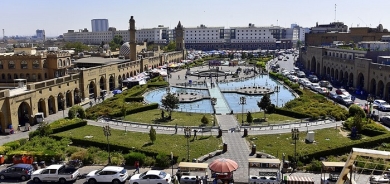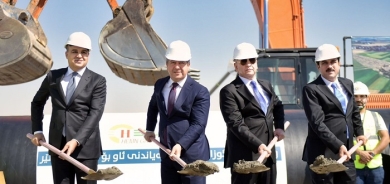Iraq’s Economy Remains Dependent on Oil Revenues Despite Promises of Diversification

A recent report from Iraq's Ministry of Finance reveals that oil revenues continue to dominate the nation’s economy, accounting for 88% of total income in 2024. Despite longstanding promises by successive governments to diversify revenue streams, non-oil income remains stagnant, comprising only 12% of total revenue.
The report details that Iraq's oil revenues in 2024 reached 110 trillion, 220 billion, and 268 million dinars, while non-oil revenues amounted to just 14 trillion, 438 billion, and 778 million dinars. This disparity highlights the country’s persistent reliance on hydrocarbons for its economic stability.
Spending Priorities and Investment Challenges
The ministry’s data also sheds light on government spending patterns, which may be exacerbating this dependency. Over the past 10 months, total expenditures reached 122 trillion, 720 billion, and 167 million dinars, with 85% allocated to operational expenses (100 trillion, 637 billion, and 260 million dinars). Only 15% (22 trillion, 82 billion, and 901 million dinars) was directed toward investment spending.
The distribution of investment funds indicates a significant imbalance:
Agriculture: 167 billion and 237 million dinars
Transportation and Communications: 2 trillion and 414 billion dinars
Industry: 12 trillion and 720 billion dinars
Education and Training: 993 billion and 448 million dinars
Construction, Services, and Roads: 4 trillion, 833 billion, and 307 million dinars
A notable inconsistency in the report suggests that investment spending increased significantly in the final months of 2024, rising from 9% of expenditures over nine months to over 15% in the ten-month period. The additional 12 trillion and 517 billion dinars in the final report raises questions about the accuracy and allocation of investment spending.
Challenges of Overreliance
Iraq's dependence on oil revenues, rooted in the nationalization of its oil industry in 1972, has made its economy vulnerable to global oil price fluctuations. Since 2003, various economic reforms aimed at strengthening the private sector and diversifying income sources have failed to produce significant results.
The limited investment in non-oil sectors, including agriculture, manufacturing, and services, continues to hinder progress toward a diversified economy. Experts argue that the minimal budget allocated to these areas perpetuates Iraq’s reliance on hydrocarbons and delays meaningful economic transformation.
As global energy markets shift and the risks of oil dependency grow, Iraq faces mounting pressure to accelerate reforms and build a more balanced, resilient economy. Whether the government can overcome these entrenched challenges remains an open question.














